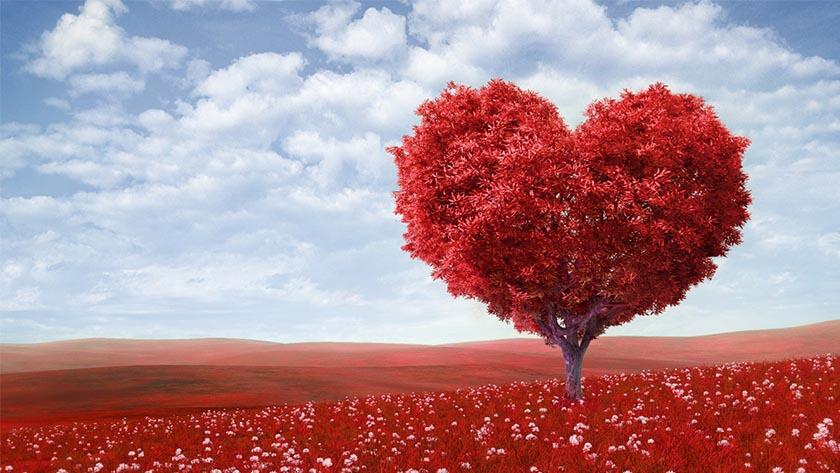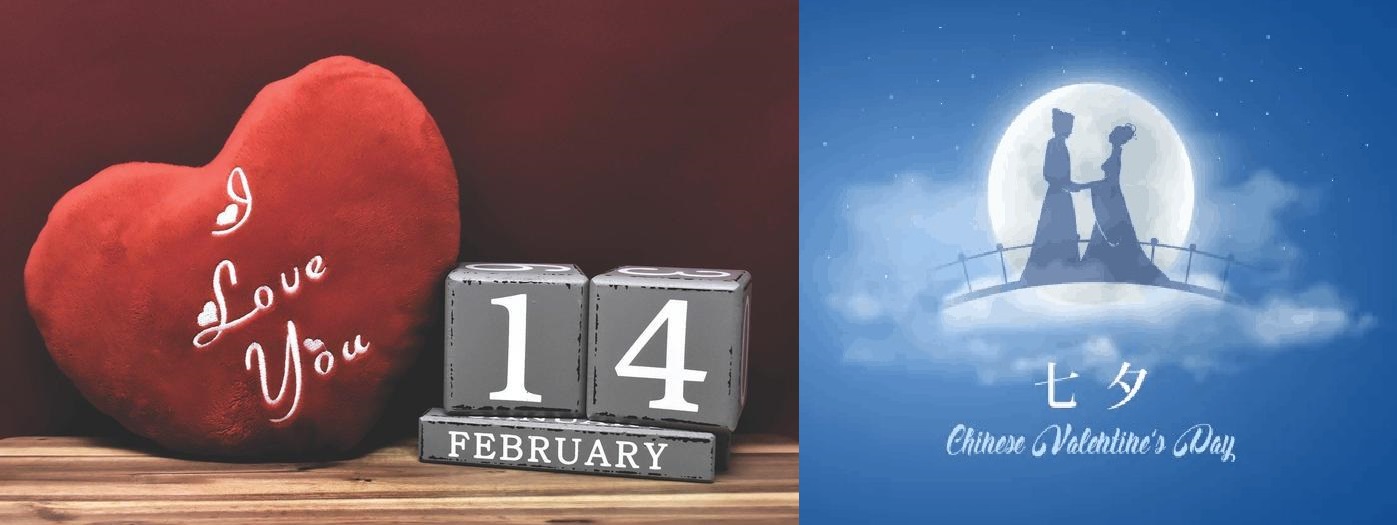
Valentine's Day and Chinese Valentine's Day, also known as Qixi Festival, are both celebrated as days of love and romance, but they have distinct cultural backgrounds, traditions, and histories. In this blog post, we'll explore the differences between these two love-centered holidays.
⚙Cultural Origins:
Valentine's Day, celebrated on February 14th, has its roots in Western culture. It is named after St. Valentine, a Christian martyr, and has been associated with love and romance since the Middle Ages. On this day, people exchange gifts, flowers, and heartfelt cards to express their affection for one another.

Chinese Valentine's Day, on the other hand, is based on a romantic folk legend. It falls on the seventh day of the seventh lunar month, usually in August. The story of the Cowherd and Weaver Girl, who are separated by the Milky Way and can only meet once a year on this day, is at the heart of the celebration. The festival has deep cultural significance in China and other East Asian countries.

⚙Date and Calendar:
Valentine's Day follows the Gregorian calendar, which is widely used in the Western world. It remains on the same date every year, February 14th.
Chinese Valentine's Day, as mentioned earlier, follows the lunar calendar, so its date varies each year. This difference in calendars adds an element of uniqueness to the celebration.

⚙Traditions and Customs:
Valentine's Day customs often include the exchange of red roses, heart-shaped chocolates, and romantic dinners. It's a day for couples to express their love through gestures and gifts.
Chinese Valentine's Day, on the other hand, involves rituals like making wishes for love, crafting colorful paper ornaments, and stargazing to witness the meeting of the Cowherd and Weaver Girl stars in the night sky. It's a day when young people pray for love and happiness.

⚙Symbolism:
Valentine's Day is symbolized by hearts, Cupid, and romantic gestures. Red and pink colors dominate the decorations and gifts.
Chinese Valentine's Day is associated with the weaving of clouds and magpies, which are considered symbols of love and fidelity. People often hang paper decorations with these motifs to celebrate.

In summary, while both Valentine's Day and Chinese Valentine's Day are days dedicated to love and affection, they differ significantly in terms of cultural origins, traditions, calendar dates, and symbolism. Whether you prefer the Western-style romance of Valentine's Day or the ancient folklore of Chinese Valentine's Day, both offer a wonderful opportunity to celebrate love with your significant other.
Links